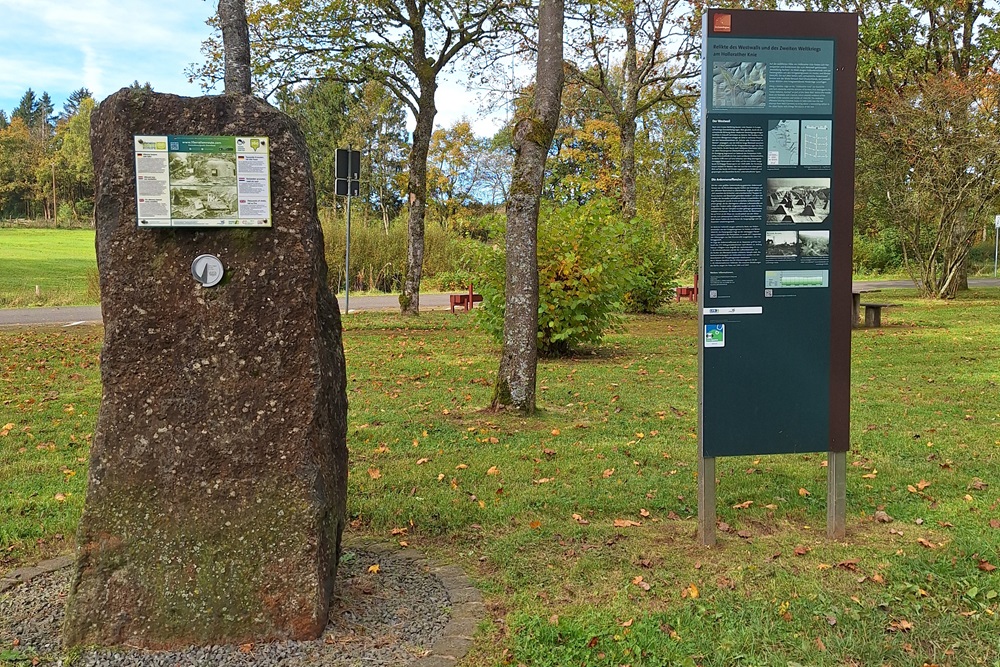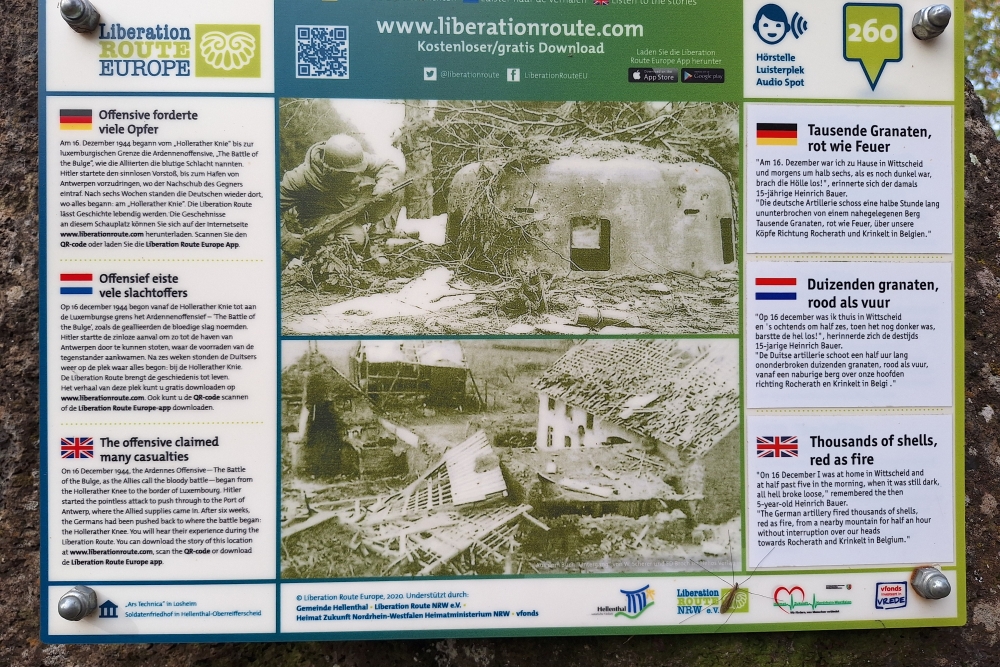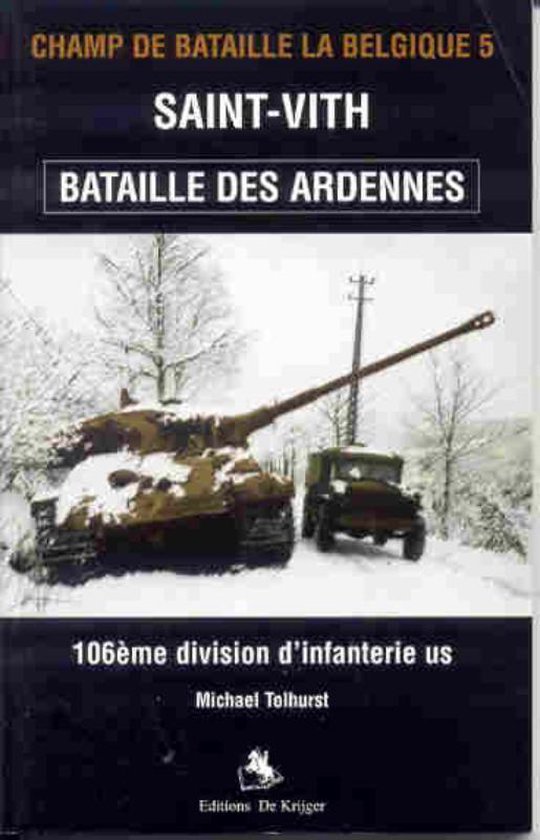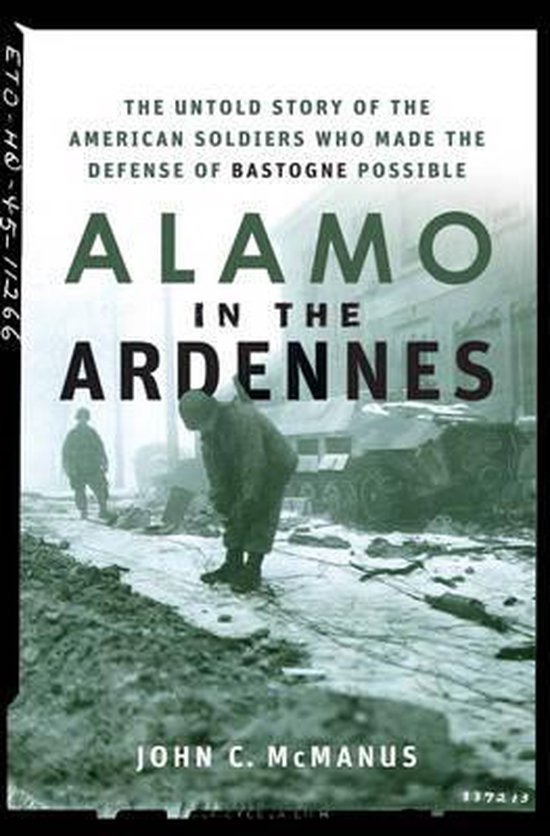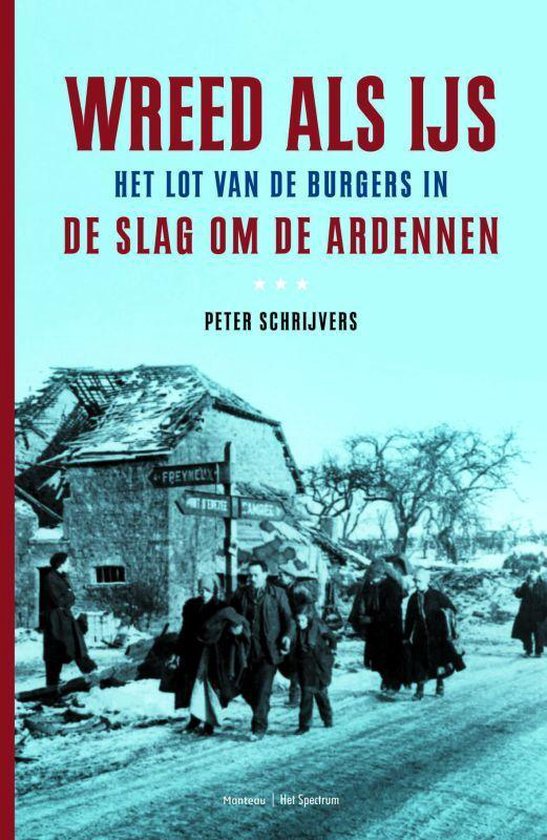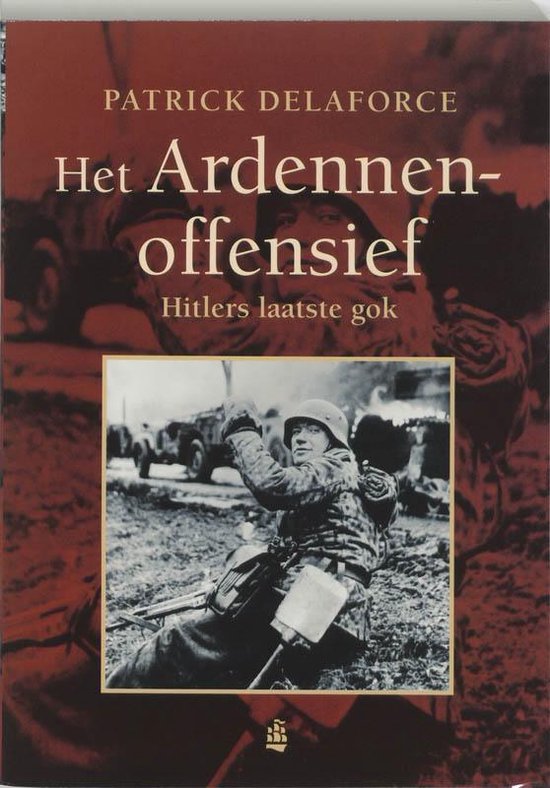Liberation Route Marker 260: The hell in Hellenthal
The hell in Hellenthal
Saturday, 16 December 1944 marks the beginning of the last major offensive on the Western front – „The battle of the Buldge“, as the allied forces name the Ardennes offensive. Hitler had to call on inexperienced younsters, many of whom were barely 14-15 years old. With no combat experience to speak of, these younsters proved unable to match the Allied supremacy.
In the summer of 1944, the German Wehrmacht suffered heavy losses on all fronts. Despite urgent requests by his generals for reinforcements in the east, Hitler looked the other way and launched the Ardennes offensive in the winter. He wanted to recapture the Port of Antwerp and cut off the Allied supply line.
On Saturday, 16 December 1944, Hitler started the offensive, and tens of thousands of mostly young and inexperienced troops and around 1000 tanks set off towards the Ardennes. The attack took place along a line stretching 140 kilometres south from the Hollerather Knee to the border of Luxembourg. The march to Antwerp failed quickly. The German forces suffered heavy losses at Bastogne and St Vith, where many Americans also lost their lives. Insufficient men, cold and wet, and a lack of fuel, ammunition and heavy artillery broke the German troops. After six weeks of fighting, they were forced back to where the attack began.
The Ardennes offensive had definitively failed. Tens of thousands of casualties had fallen on both sides, and the Wehrmacht had not gained an inch by the end of it. The Allies continued to supply a steady stream of tanks and men.
Audiospot - The hell in Hellenthal
Liberation Route Europe is a certified Cultural Route of the Council of Europe. With hundreds of sites and stories in nine European countries, the route links the main regions along the advance of the Allied Forces in 1943-1945.
The entire route consists of themed routes that can be travelled by by hiking, walking, cycling and car. These routes pass numerous historical and interesting sites and tell stories from a multitude of perspectives that were important in the final phase of World War II.
Many routes feature listening spots, offering the opportunity to listen to a historical story at a location. In addition, many ‘Vectors of Memory’ have been placed, indicating that the passer-by is on one of the Liberation Routes.
The routes can be found on the Liberation Route Europe website or in the app through which many stories can also be listened to.
Do you have more information about this location? Inform us!
Source
- Text: TracesOfWar & Liberation Route Europe
- Photos: Hans Tasma
Related books
Nearby
Point of interest
- Rollbahn A; German Assault Route Ardennes Offensive - Hollerath (Hellenthal)
- Information Board POW Camp Hollerath - Hollerath
- Foxholes 393th Infantry Regiment (99th Infantry Division) - Hollerath
Monument
- 277. Volksgrenadier & 99th US Infantry Memorial - Hollerath
- War Memorial Hollerath - Hollerath
- War Memorial Ramscheid - Ramscheid (Hellenthal)
Cemetery
- German War Grave Ramscheid - Ramscheid (Hellenthal)
- German War Cemetery Oberreifferscheid - Reifferscheid
- German War Grave Reifferscheid - Reifferscheid (Hellenthal)
Remembrance Stone
- Stumbling Stones Zur Mühle 2 - Ramscheid (Hellenthal)
- Stumbling Stones Höhenbergringstraße 7 - Hellenthal
- Stumbling Stones Kölner Straße 32 - Hellenthal
Fortification
- Information Board Defence Line Hollerather Knie - Hollerath (Hellenthal)
- Hockerlinie Hollerath - Hollerath
- Westwall - Tank Barrier Hollerath - Hollerath
